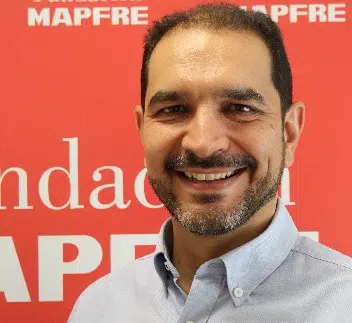SUSTAINABILITY| 03.10.2022
Why do I never manage to save what I set out to save?
If you are asking yourself that question, it means you’ve already taken a big step: you’ve set out to save for your dreams. But let’s start at the beginning. Why is it necessary to save? Or let’s go even further. Why is it necessary to manage our family economy optimally?
These and other issues are just a reflection of how important financial education is in our lives. And you don’t need to be an expert in finances, just aware of your personal situation, and see the economy as a means to achieve the goals you set yourself and not as a weight you carry on your back that you cannot free yourself from.
Mortgages, interest, fees, exchange rates, inflation, etc… there is a never-ending list of financial terms that we come across every day. Whether we like it or not, throughout our lives we will have to make decisions related to finances, and, as in everything, the more prepared we are to do it, the better we will do it.
That’s why Fundación MAPFRE is going to try to guide you in five steps, so that you can manage your personal finances easier and have less headaches.
1. Knowing yourself
No excuses. If you want to control your economy, you must first be clear about who and how you are from a financial point of view.
This translates into being clear about your assets, your income and expenses, and thus your capacity to save. In short, making your family budget and working with it.
In this article we explain budgets that last a lifetime. And to make it even easier for you, in the coming months we will be offering a tool with which you will be able to create your own personalized budget.
2. Visualize your dreams
In other words, set goals and be clear about how you should manage your money to achieve them. The famous phrase “money doesn’t bring happiness” is probably true, because money should not be a goal in itself, but a means to help us achieve the goals we have set for ourselves.
Here are some tips on how to save and invest to help you achieve your goals, although the first thing you should do is create an emergency fund, which is nothing more than having a certain amount of money available to deal with unforeseen events. Here I mean unforeseen expenses, not expenses that we know we will eventually have to pay but that we have not adequately planned for.
This emergency fund will allow you to sleep more soundly and, from there, you can continue to build your financial strategy.
3. Build your strategy. Savings are the basis
You already know what you can save each month and what you want it for, but where can you start? Your budget has helped us to be aware of where you spend your money, and therefore where you can reduce spending to start saving and be able to achieve those dreams we all have. What you need to do now is to make saving into a habit.
The key to start off on the right foot is to stop seeing savings as something negative and turn it into your “means of transportation” to have a smooth journey, financially speaking.
4. Be careful Saving alone is not enough
Inflation! A concept that, unfortunately, has become part of our everyday vocabulary and has become the great “enemy” of savings.
To put it somewhat simplistically, inflation is the generalized increase in prices and what it does is “eat up your savings.” If the price of products increases, but your money does not, you will lose purchasing power.
And what can you do to avoid it? The secret is to invest. A first, it is a scary concept and we usually feel that we’re not ready for it, but the truth is that, with the right expert advice and the grasping of some simple concepts, we can all become investors once we have created our emergency fund and our savings strategy.
Does this mean that you have to choose between saving and investing? Not exactly. Ideally, the investment should be included in your savings plan. In other words, when you know your saving capacity and acquire the habit we have mentioned above, you can (I would say that you “should”) allocate a part to increase your saved money, and another part to invest.
But in order to take this step, you must take into account several fundamental factors:
- Invest only what you are willing to lose: every investment involves risk and this risk is directly proportional to the expected return. In other words, if you want to obtain a higher return, you must also be willing to assume greater risk and even lose more money in the event that the investment does not turn out as you expect.
- Invest what you do not need in the short term, because not all investment products have the same liquidity (ability to recover your investment immediately), and you may lose profitability if you have to withdraw your investment suddenly and unplanned.
- Time is the key: long-term investments are generally the ones that offer the best results.
5. Enjoying the future with peace of mind
You already have everything, so all that’s left to do is live your life… because, remember: all this effort you are making is to achieve the financial well-being that will help you achieve your life goals in a simpler way.
These five steps are only intended to be a small guide to what our relationship with finances should be, but they are part of a broader strategy that Fundación MAPFRE deploys through its program Insurance and Pensions for All, the main objective of which is to provide society with a simpler vision of insurance, social security, savings and investments.
Under this program, it participates as a collaborating entity of the Financial Education Plan promoted in Spain by the National Securities and Exchange Commission, the Bank of Spain and the Ministry of Economic Affairs and Digital Transformation; and which on the first Monday of each October celebrates Financial Education Day.
Every October the Foundation develops actions around the chosen slogan, which in 2022 is “Education for safer finances.” Therefore, on October 3 a campaign was launched on social networks with tips to avoid being victims of financial fraud; a practice that is increasingly widespread through fraudulent emails or SMS, or financial scams, among others.
And Fundación MAPFRE’s actions in the field of financial education do not stop there. In addition to Financial Education Day in Spain, it also participates in Financial Education Weeks in Brazil and Mexico, and in Global Money Week which it has joined this year 2022 and in which it will continue to participate in the coming years.
And we will continue to create new content, and to provide training sessions in classrooms, with which each academic year we reach more than 40,000 university, vocational training, high school and 4th year secondary school students.
RELATED ARTICLES:




